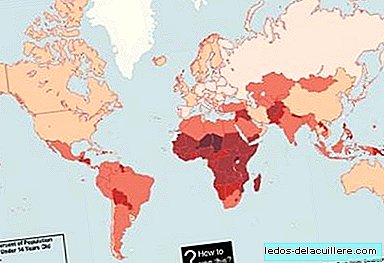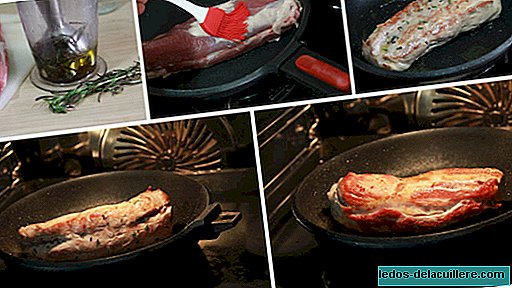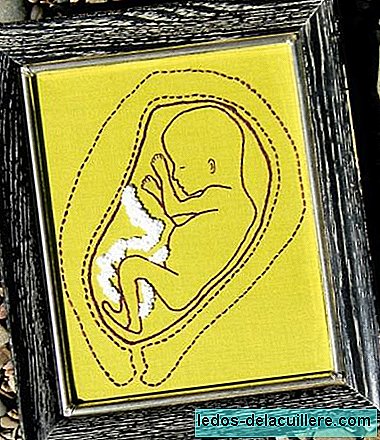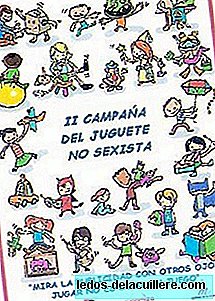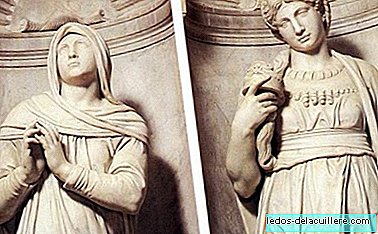
In order to suggest you female names for babies we continue to review the Old Testament and presenting his heroines.
We left Jacob escaping from his brother and heading to his uncle Laban's house to get rid of Esau's wrath and, incidentally, to look for a dignified wife and his kinship to respect family traditions.
Arrived, after a long trip to the village where his mother came from he asked some people who introduced him to a daughter of Laban, called Raquel, which left him dazzled at first sight. The girl kissed him on the cheek and took him, happily, to his house, where he introduced him to his father Laban and his older sister, Lees.
Raquel, Lía, Zilpa and Bilha
Raquel, a very beautiful name, comes from the Hebrew RAHEL and means "sheep", but it translates in many cases as "the mother", "the night".
After spending some time living with his uncle and working for him, he asked him what payment he would consider appropriate for these tasks. Jacob took advantage and asked for the hand of Raquel, who was in love with. The uncle agreed to the marriage but asked, as payment, that Jacob worked first for him for seven years.

After these, the wedding took place, but Laban, who, like his sister, did not hesitate to use deception if it was necessary for his plans, meant that the bride was not in the dark bedroom. Instead of with RaquelJacob slept with Lees, the older sister and the marriage, consummated, was considered valid.
Jacob accepted the facts, but still wanted to marry Raquel, so they agreed to another seven years of work and, after these, he could marry his beloved.
The two sisters also contributed each of them a servant who had given them their father, called these Bilha and Zilpa, which would also end up being Jacob's concubines.
Jacob evidently preferred Raquel and God wanted to balance things, preventing her from conceiving children for many years. Lees (LE'AH in Hebrew), whose name means "tired" in Hebrew, but also translates as "lioness" had several children: Reuben, Simeon, Levi, and Judah.
Raquel, jealous of her sister's motherhood, offered her husband to have children with his servant Bilha, and this would give birth to Dan and Naphtali. Bilha gave birth sitting on Rachel's knees, so she could claim the children as her own, perhaps in the first example of a "surrogate mother" we know. The origin of the name of Bilha is unknown, it could mean "carefree" "the one that has no problems" but mostly because it is thought that its translation into Arabic would be BALIHA and this name in Arabic has this meaning. But there are also theories that say that it could have been the name of the place she came from and that today no longer exists with this name.
Leah wanted to give Jacob more children but the pregnancy took what she, too, offered to her servant Zilpa, who was the mother of Gad and Aser. Zilpa's name means "tenderness." Lía would have more children later: Isacar, Zebulun and a girl, Dina.
There came a time when Jacob decided to return to his parents' land and with all four he would return. Things in all those years had calmed down and even his brother had taken a third wife, daughter of that Ishmael whom grandfather Abraham had removed from the family. Esau received Jacob well.

Raquel She was finally blessed with her greatest desire, that of motherhood and had two children: Joseph and the little one of the big family: Benjamin, although he died giving birth. According to the Torah, Raquel She was buried on the road to Efratá, near Bethlehem, where Jacob erected a stele over his grave.
However, the exact location of the tomb of Raquel It is a subject discussed, although there is a place that is considered the true one and that receives, even today, pilgrimages and is considered a sacred place by the Hebrews, although very controversial for its location. The image that I leave from the grave is old, today it has been surrounded by a wall that makes it not, in my opinion, so beautiful.
In Babies and more | Female baby names: Old Testament characters (I), Baby names: mythological heroines (I), (II), (III) Baby names: names of Greek mythology heroes (I), (II), Names female babies: Egyptian goddesses and queens, Male baby names: Egyptian gods and pharaohs, Female baby names: Egyptian origin, Male baby names: Egyptian origin, Baby names: Bible characters



